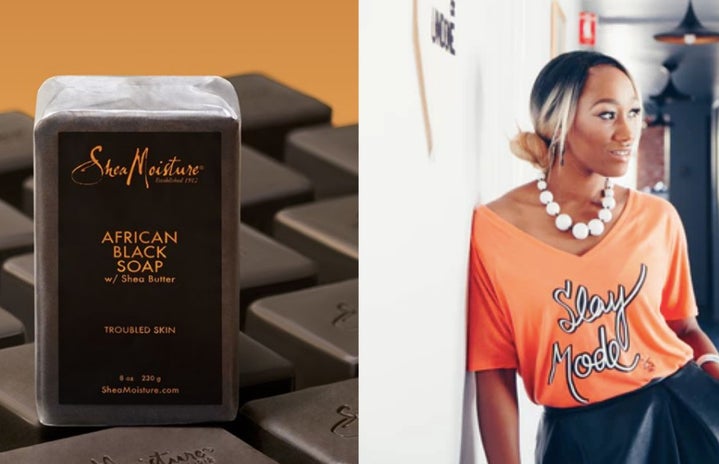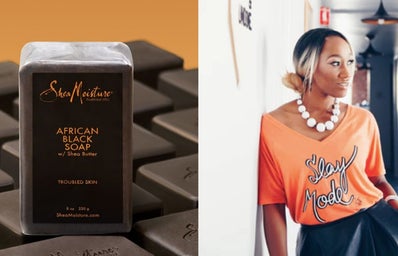Diversity is at the forefront of the beauty industry’s marketing and priorities these days, and right now, women of color have more options than ever when it comes to beauty products – from foundation to conditioner – that cater to their unique skin and hair needs.
Obviously, there’s still such a long way to go as far as getting all brands on the same page and level with inclusivity, but we do have the hard work of those innovators before us to thank for where we are now.
One company in particular, SheaMoisture, has been creating cosmetics for over 100 years, and accessibility has always been at the forefront of the brand’s messaging.
According to Nicola Chung, Senior Director of Haircare Innovation at Sundial Brands, the manufacturer of SheaMoisture, the recipes for each product have been “handed down from founder and CEO, Richelieu Dennis’ grandmother Sofi Tucker.” In the early 1900’s and at the age of just 19, Tucker sold her shea butter products to support her family, positioning her as a groundbreaking young Black entrepreneur the entire industry, and women pursuing their dreams, can look up to.

So what does diversity look like for SheaMoisture? Chung believes that SheaMoisture is “first and foremost a family brand,” and will work to continue Sofi Tucker’s legacy by incorporating shea butter into its products that are “ethically sourced…from 15 women’s co-ops in Northern Ghana”. Not only do they support women entrepreneurs abroad, but in the U.S., SheaMoisture also invests in “entrepreneurial education and opportunities for women of color.”
Something remarkable is that the brand advocates for inclusivity awareness through their #BreakTheWalls campaign which highlights how many beauty aisles are broken into two sections: mainstream beauty and ethnic beauty. The campaign seeks to make beauty “accessible for all” and focuses on “communities that have been traditionally underserved.”
How can other brands help advocate for diversity in the industry? Chung believes that through direct “engagement with [their] retail partners and with [their] diverse community of women,” SheaMoisture has been able to champion diversity in their products, trickling seeds of inclusive practices and reminders into the industry as a whole. Other brands, take note.
Chung also notes that we as individual consumers should feel empowered to push brands to become more diverse. AKA, time to spend your money with “brands that celebrate diversity and are inclusive to all!” You can take this even further by being intentional with your beauty: reading labels, asking questions, and expecting more from brands in areas like sustainability, ethical sourcing, and giving back to communities.
Now that you have the tools necessary to hold brands accountable for their diversity, go out and be your own changemaker!


